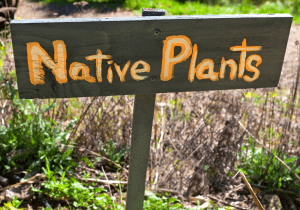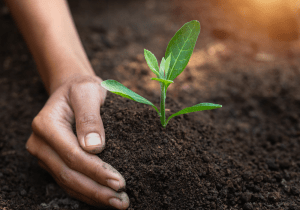In the realm of environmental stewardship, vegetation management plays a crucial role in maintaining the delicate balance of ecosystems. As populations grow and landscapes evolve, the need for effective vegetation management practices becomes increasingly apparent. Southwestern Brush Control understands the importance of preserving biodiversity and enhancing ecological health through strategic vegetation management. In this blog, we will explore how vegetation management contributes to the enhancement of ecosystems and the promotion of sustainable environmental practices.
Promoting Native Plant Diversity:
One of the primary objectives of vegetation management is to promote native plant diversity within ecosystems. Native plants are uniquely adapted to local environmental conditions and provide essential habitat and food sources for native wildlife. By selectively managing vegetation to control invasive species and promote the growth of native plants, ecosystems can maintain their ecological integrity and resilience.

Southwestern Brush Control employs a variety of techniques to promote native plant diversity, including selective herbicide application, mechanical removal of invasive species, and reseeding with native plant species. By restoring native plant communities, we help to create healthy habitats for wildlife and support the overall biodiversity of the ecosystem.
Preventing Habitat Fragmentation:
Habitat fragmentation, often caused by urban development and land use changes, can have detrimental effects on wildlife populations and ecosystem function. Vegetation management plays a critical role in mitigating habitat fragmentation by maintaining contiguous habitats and preserving natural corridors for wildlife movement.
Southwestern Brush Control works closely with landowners and conservation organizations to identify key habitat areas and implement vegetation management strategies that prevent habitat fragmentation. By strategically maintaining vegetative buffers and preserving connectivity between habitats, we help to safeguard wildlife populations and ensure the long-term viability of ecosystems.
Improving Soil Health:
Healthy soil is the foundation of thriving ecosystems, providing essential nutrients, water retention, and support for plant growth. Vegetation management practices that prioritize soil health contribute to the overall resilience and productivity of ecosystems.

Southwestern Brush Control employs soil conservation techniques such as erosion control, mulching, and cover cropping to improve soil health and prevent degradation. By minimizing soil erosion, enhancing soil structure, and increasing organic matter content, we create conditions that support robust plant growth and ecosystem vitality.
Enhancing Water Quality:
Vegetation management plays a critical role in protecting water quality by preventing soil erosion, reducing nutrient runoff, and filtering pollutants from entering waterways. By maintaining vegetative buffers along water bodies and implementing erosion control measures, vegetation management practices help to safeguard aquatic ecosystems and drinking water supplies.
Southwestern Brush Control prioritizes water quality protection in all vegetation management projects, utilizing best management practices to minimize the impact of land disturbance on nearby water resources. By partnering with regulatory agencies and watershed groups, we ensure compliance with water quality regulations and promote responsible stewardship of natural resources.
Mitigating Wildfire Risk:
In fire-prone landscapes, vegetation management plays a crucial role in mitigating the risk of wildfires and protecting communities and natural habitats from catastrophic damage. By strategically reducing fuel loads and creating defensible space around homes and infrastructure, vegetation management practices help to minimize the spread and intensity of wildfires.
Southwestern Brush Control specializes in wildfire mitigation strategies, including prescribed burning, fuel reduction treatments, and firebreak construction. By working collaboratively with landowners, fire agencies, and community stakeholders, we help to create fire-adapted landscapes that are resilient to wildfire and support healthy ecosystems.
Vegetation management is a multifaceted approach to enhancing ecosystems and promoting sustainable environmental practices. From promoting native plant diversity and preventing habitat fragmentation to improving soil health and protecting water quality, vegetation management plays a vital role in maintaining the health and resilience of ecosystems. Southwestern Brush Control is committed to employing innovative vegetation management strategies that prioritize biodiversity, habitat conservation, and ecosystem health.

